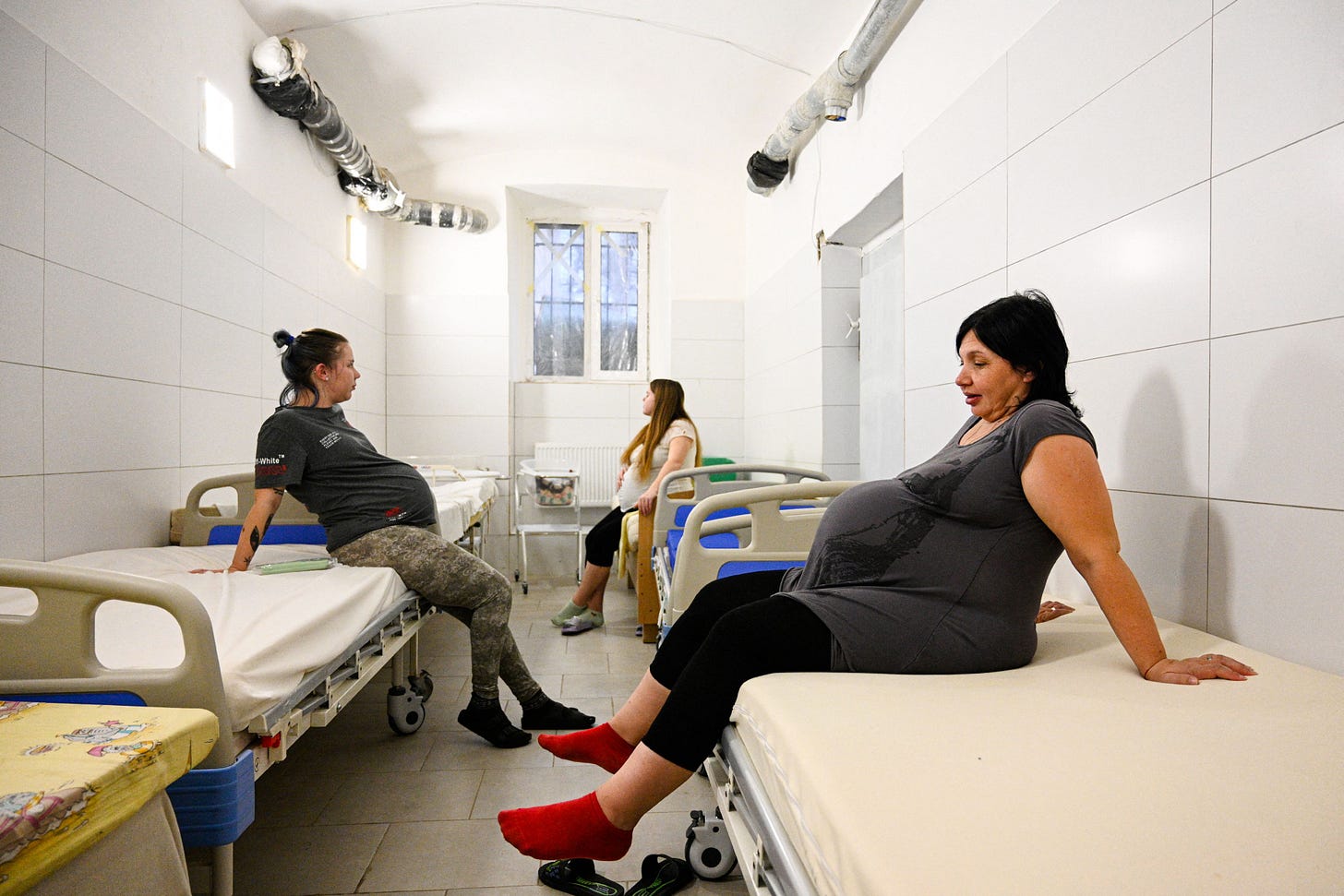The men that take babies away from their mother
Description
There is a contradiction at the heart of the international surrogacy industry. Its participants pretend that surrogates’ feelings for the children in their wombs do not exist, whilst simultaneously trying to prevent them acting on those feelings. Many commissioning parents broker the babies in jurisdictions that allow restrictions on surrogates’ rights.
In the UK, this contradiction was recently laid bare in a Family Court case (citation number: [2024] EWFC 20). A gay male couple were engaged in a long-running legal battle with the birth mother of a child they acquired via a surrogacy arrangement. Rather than vanish after handing over the child, she wanted a role in the boy’s life. The men’s response was to insist that the child had no mother — only a surrogate — and that the child’s identity was as part of a motherless family. There was “no vacancy” for her to occupy in his life, they claimed, and it was prejudicial to gay families to suggest otherwise.
At the start of this story, G, the surrogate in question, was a 36-year-old single mother of a teenager and naive about what surrogacy entailed. The commissioning parents were friends of her sister but not people she knew. Aged 43 and 36 and married, they were members of an agency, Surrogacy UK, and very familiar with its protocols — which included a “getting to know you” period — and support. However rather than go through the agency, the men chose to fast-track the process with an independent arrangement with G.
Following a failed transfer of a donor egg, the trio decided to use G’s own egg. The men agreed that G would have contact with the child, but none of the parties properly considered the implications. The relationship between the three deteriorated during G’s pregnancy. G gave birth to a boy in September 2020.
After the birth, G would not initially consent to the parental order, under which she would lose parental responsibility as she feared being cut out of the child’s life. But during a lengthy online hearing in which she was alone and unrepresented — unlike the men — G was pressured by the judge to agree to the parental order along with a contact agreement called a child arrangements order.
After obtaining parental responsibility, the men quickly reneged on the agreement. When G turned up at their house for a pre-arranged visit they threatened to call the police. She recorded the meeting. The Family Court judge later declared of the recording “what was said has rightly been described as ‘horrendous’”. The men told G she was “harbouring a desire to have an inappropriate relationship” by wanting the boy to recognise her as his mother and accused her of having “rejected the role of surrogate”.
In January 2022, the men refused to allow G to visit her son and applied for the contact agreement to be changed. G then made her own application for the parental order to be overturned. She won her case in November the same year. This restored her parental responsibility for the child and removed it from the man who was not the child’s biological father.
The men redoubled their efforts to remove G as a parent, this time applying for an adoption order. During court proceedings, they claimed the child’s identity was that of a child of same-sex parents being raised within the LGBT community and that he belonged to a “motherless family”.
They accused G of homophobia, telling her: “There is no vacancy to fill just because [the baby] has same-sex parents.” Any maternal role for G would send a message that the gay family was incomplete or inadequate, they argued. The court-appointed Children’s Guardian also said the child would face stigma and prejudice for having same-sex parents and “it is important the right message is provided to him”.
As a lesbian who came out in the 1970s, I’m only too aware of the history of demonisation of lesbian and gay couples. Parents who conceived children in heterosexual relationships were often denied custody and contact if they came out as gay after separation. Foster and adoption agencies were openly prejudiced. But times have changed, and same-sex parents are now a common sight at the school gates in some parts of the UK.
Claims that the children of same-sex parents are disadvantaged in some way have largely been defeated with an expanding body of evidence (e.g. Zhang Y, Huang H, Wang M, et al., BMJ Global Health, 2023) showing their outcomes are similar to those of heterosexual families. Gay rights are robustly supported in most public institutions and private organisations. For a gay couple to call on historic prejudice to justify excluding a mother from a child’s life is unforgivable.
In any case, the men’s argument was fatally — and obviously — undermined by its own logic. If the boy did not have a mother, there would be no need for the court case.
As the jointly-instructed clinical psychologist in the case recognised, the driver of the men’s case was the “elephant in the room” — G’s existence as the child’s legal and biological mother — and the men’s fear of her maternal bond with her son. The men had difficulties “accepting the reality” of the child’s conception, the psychologist found, and considering what sense the boy might make of the situation as he grew up.
“They have strongly held to the surrogacy agreement and the narrative of [G] being a ‘surrogate’ because in that narrative there are no, or hardly any feelings from the surrogate for the baby,” the psychologist wrote. He described the men as attempting an “erasure of the mother”, which he said was not in the child’s best interest as it did not reflect reality.
Refusing an adoption order that would likely have resulted in cutting G from her son’s life, the court ruled that G should have direct and unsupervised contact with him. The judge criticised the men for blaming G for everything that went wrong. The judgment also







